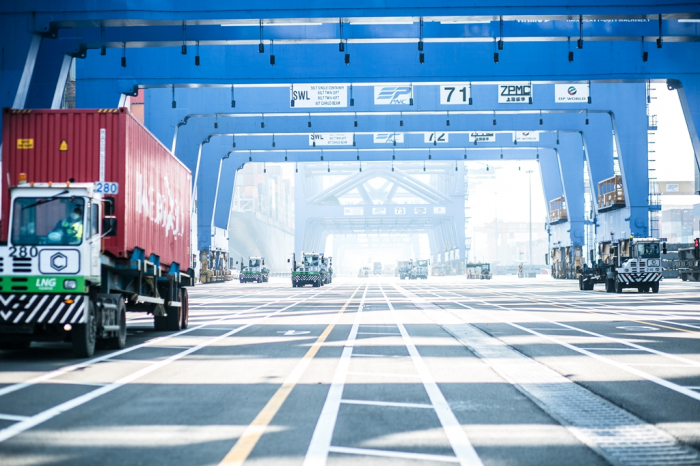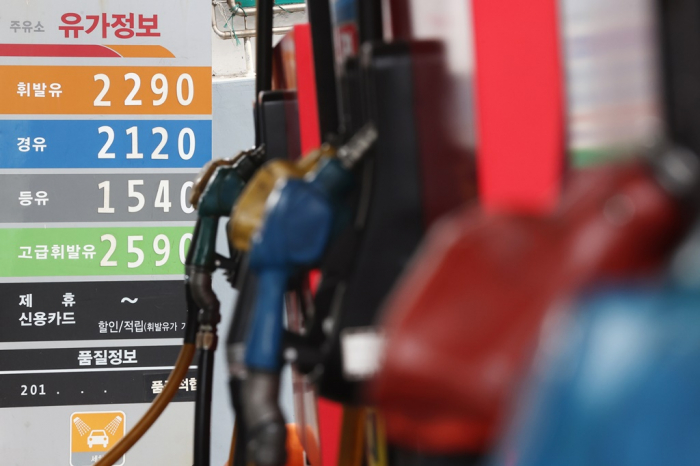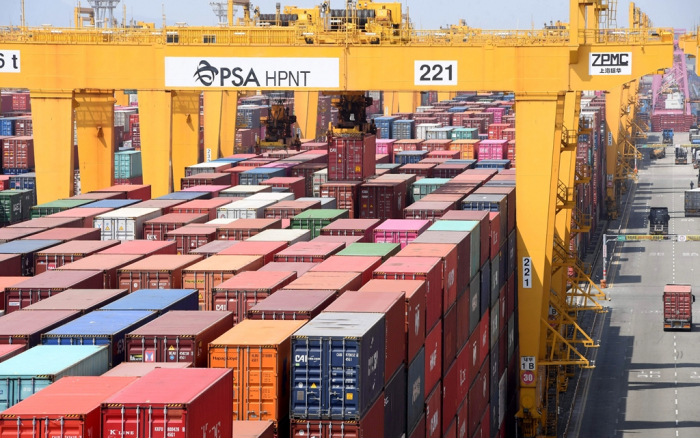Corporate investment
Korea’s Q1 facility investment cut in half, spooked by macroeconomic risks
Rising oil prices, inflation and expectations for further rate hikes all bode ill for corporate Korea
By Apr 05, 2022 (Gmt+09:00)
3
Min read
Most Read
LG Chem to sell water filter business to Glenwood PE for $692 million


KT&G eyes overseas M&A after rejecting activist fund's offer


Mirae Asset to be named Korea Post’s core real estate fund operator


StockX in merger talks with Naver’s online reseller Kream


Meritz backs half of ex-manager’s $210 mn hedge fund



South Korea’s major companies are drastically cutting their capital spending as heightened macroeconomic risks coupled with growing external uncertainties are worsening their business conditions.
According to government data on Tuesday, 54 companies have reported via regulatory filings that their spending plans for facility investment and tangible asset acquisitions reached a combined 3.78 trillion won ($3.12 billion) in the first quarter.
Among those companies, LG Innotek Co. was the only company that promised to spend over 1 trillion won. The company said it would spend 1.06 trillion won in camera module facility expansion and 413 billion won in substrate material line buildup, bringing its total first-quarter investment to 1.47 trillion won.
Hyundai Glovis Co., a logistics unit of Hyundai Motor Group, reported 254 billion won in its first-quarter investment plan, followed by SD Biosensor Inc., a diagnostic reagent maker, which pledged 188 billion won in corporate spending.
The total first-quarter corporate capital expenditure represents a 52.3% decline from a combined 7.95 trillion won reported by 36 companies in the year-earlier period. This year’s figure is even smaller compared to the pre-pandemic level of 5.25 trillion won in 2019.
“A growing number of companies are hesitating to spend money amid rampant views that the economy is headed for a slowdown,” said Joo Won, director of Hyundai Research Institute, a private think-tank.

PERFECT STORM
Korean companies, big and small, are revising their business plans for this year as soaring oil prices slam the domestic economy, Asia’s fourth-largest.
When they worked out their 2022 business plans, global oil prices were hovering around $70 a barrel.
However, in early March, oil prices spiked to a 14-year peak with the global benchmark Brent at $139.13 a barrel in the wake of Russia’s invasion of Ukraine. Global investment bank JPMorgan said oil prices could rise to as high as $125 per barrel in the second quarter.
Korea’s energy and raw materials imports have surged to all-time highs in value terms following the war in Ukraine, which led to global logistics and supply chain disruptions amid a growing trend of resource nationalism worldwide.
Local companies are also groaning under rising inflation and higher interest rates, which boost their borrowing costs for investments.
Bank of Korea data showed the country’s consumer prices grew at the fastest pace in more than 10 years in March on surging energy and commodity prices, fanning the view that the central bank will further tighten its hawkish monetary bias.
“Higher oil prices, increased volatility in the dollar-won exchange rate and expectations of further rate hikes by the BOK and the US Fed will combine to work as the perfect storm for corporate Korea,” Hyundai Corp., a general trading firm, said in a recent business report.

MEASURES FOR SMEs ARE CALLED FOR
Bank of Korea data showed the business sentiment index (BSI) for the manufacturing sector stood at 84 in March, down 7 points from the previous month, marking the lowest since February 2021 when it was 82. A reading below 100 means pessimists outnumber optimists.
Corporate earnings are also expected to deteriorate as rising oil prices and higher borrowing costs are set to erode their profitability.
The country’s 131 listed companies are forecast to log a combined 36.4 trillion won in operating profit during the first quarter, according to financial information provider FnGuide. That’s 2.3 trillion won or 6% lower than the consensus of 38.7 trillion won predicted before Russia’s military attack on Ukraine.
On Monday, the country’s government bond yields surged, with the highly liquid three-year debt yield at a near eight-year peak on views that the BOK and the US Fed could raise their policy rates faster and by a higher margin.
“Higher interest rates will rapidly cool the businesses’ investment appetite. A financial assistance program is required to help smaller companies tide over the current crisis,” said Hansung University economics professor Kim Sang-bong.
Write to Ik-Hwan Kim and Jeong-Min Nam at lovepen@hankyung.com
In-Soo Nam edited this article.
More to Read
-
 EconomyKorea March inflation at 10-year high; bond yields surge
EconomyKorea March inflation at 10-year high; bond yields surgeApr 05, 2022 (Gmt+09:00)
3 Min read -
 War in UkraineKorea jittery over oil, gas, commodity weaponization
War in UkraineKorea jittery over oil, gas, commodity weaponizationMar 13, 2022 (Gmt+09:00)
4 Min read -
 EconomyBOK sees inflation at 11-year high as oil tops $100 on Ukraine crisis
EconomyBOK sees inflation at 11-year high as oil tops $100 on Ukraine crisisFeb 24, 2022 (Gmt+09:00)
3 Min read -
 MarketsKospi lowest in nearly 7 months; outlook dim on inflation, US debt standoff
MarketsKospi lowest in nearly 7 months; outlook dim on inflation, US debt standoffOct 05, 2021 (Gmt+09:00)
4 Min read
Comment 0
LOG IN


